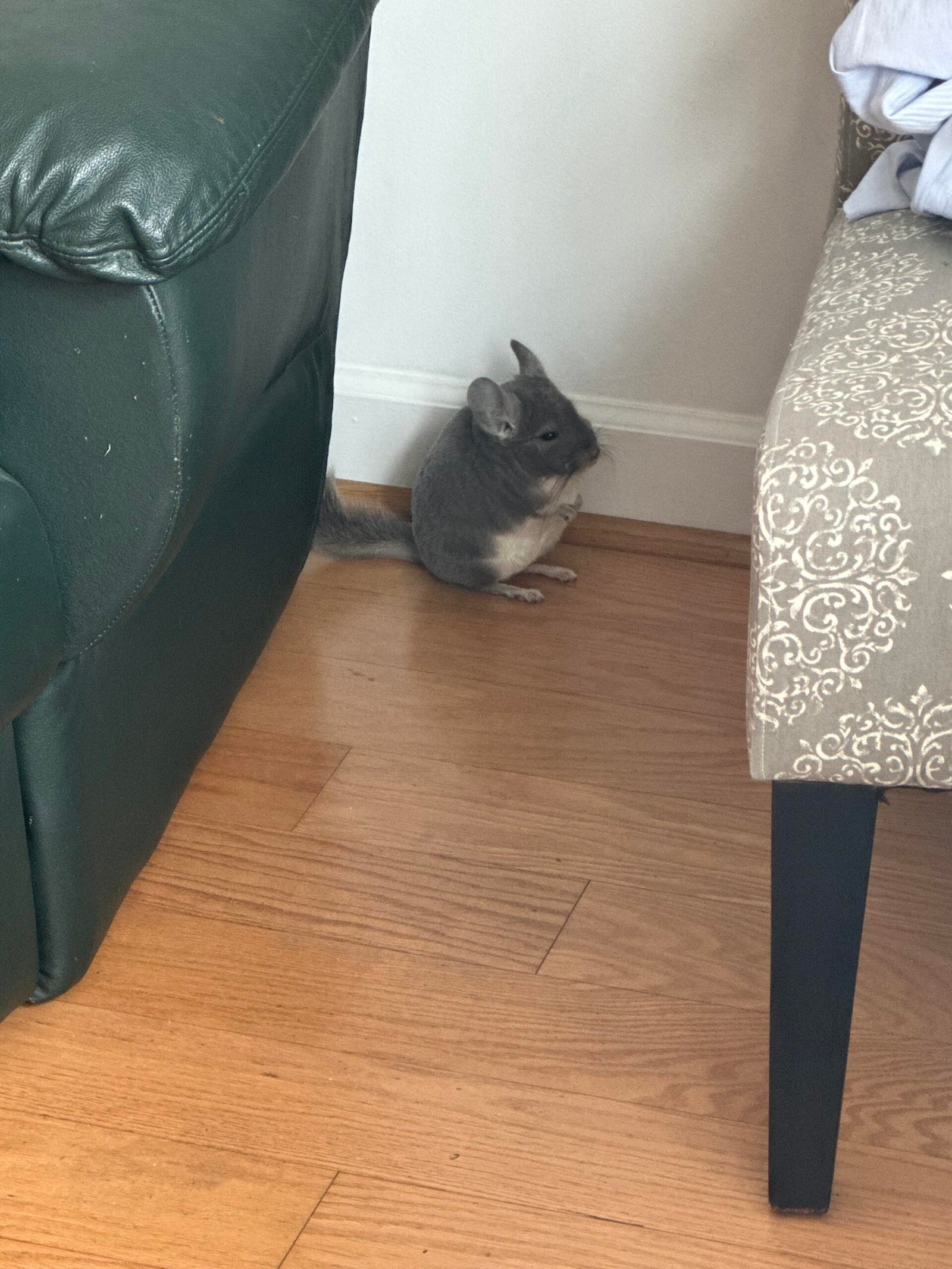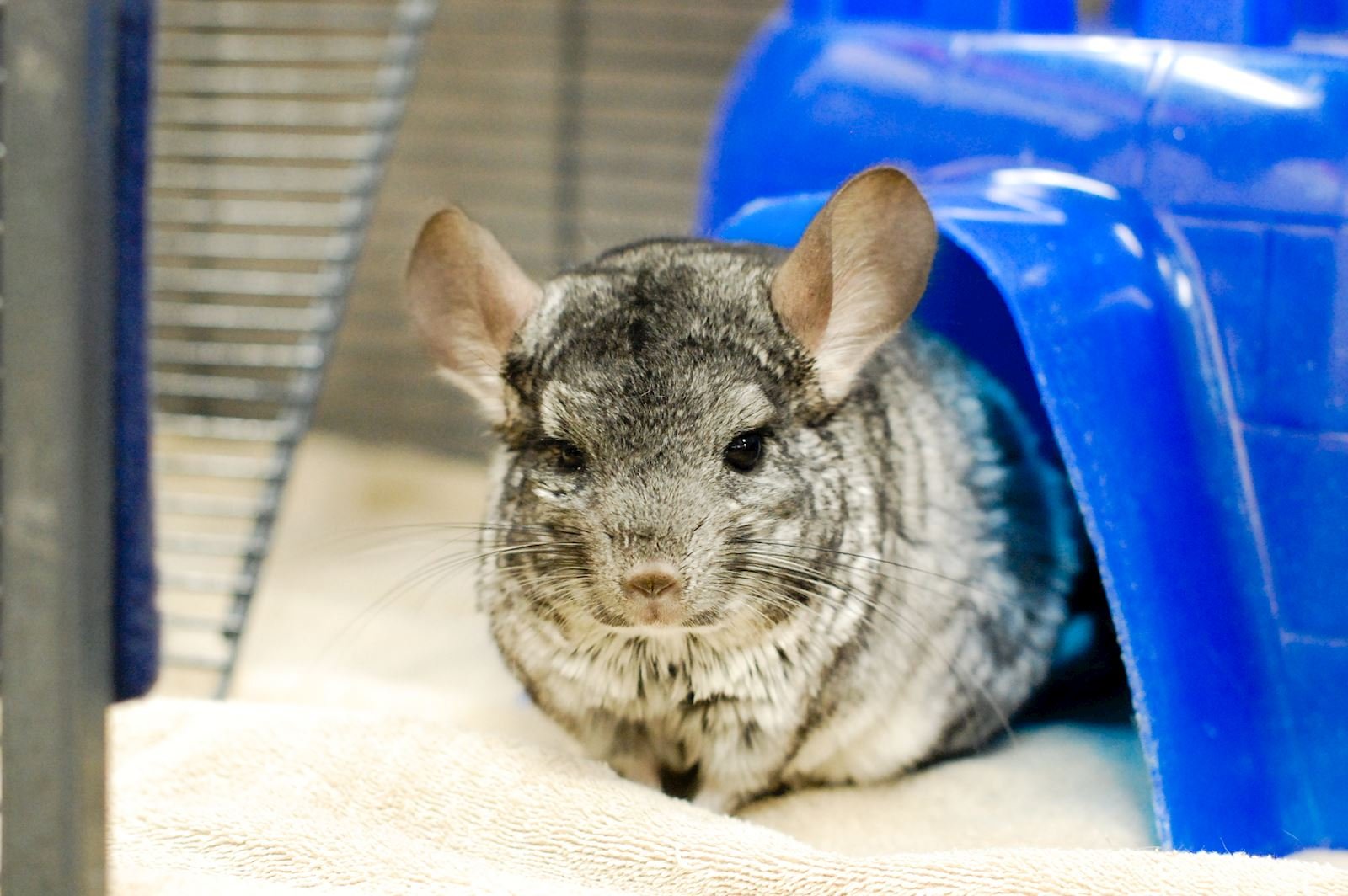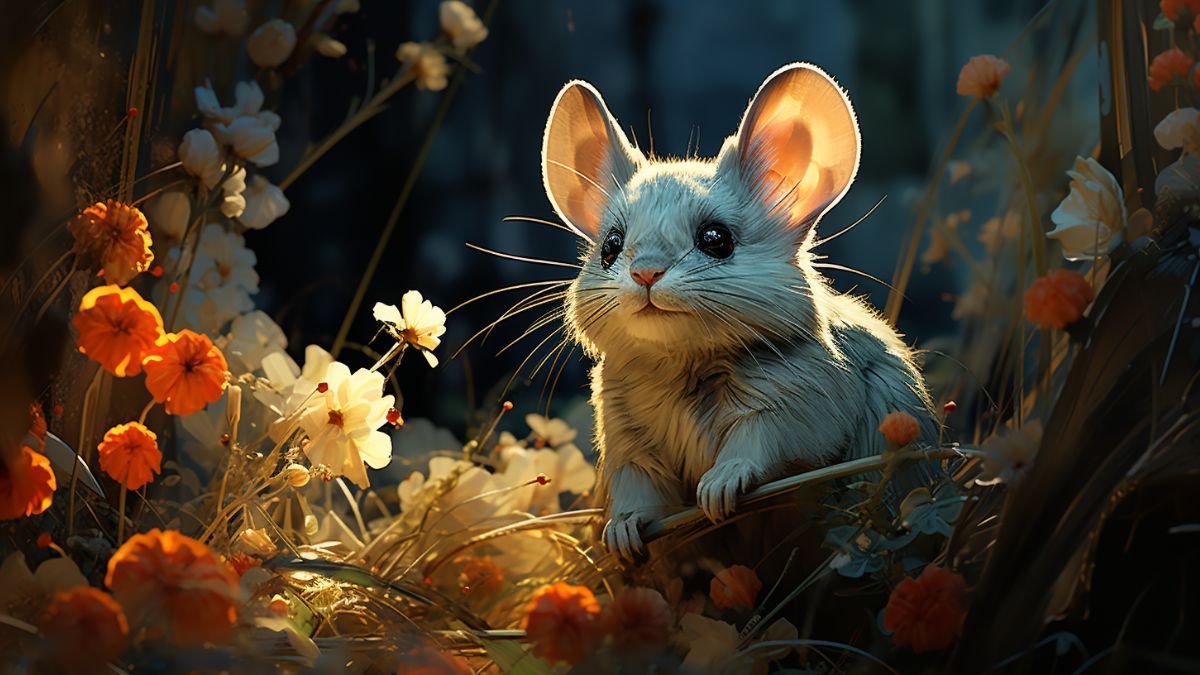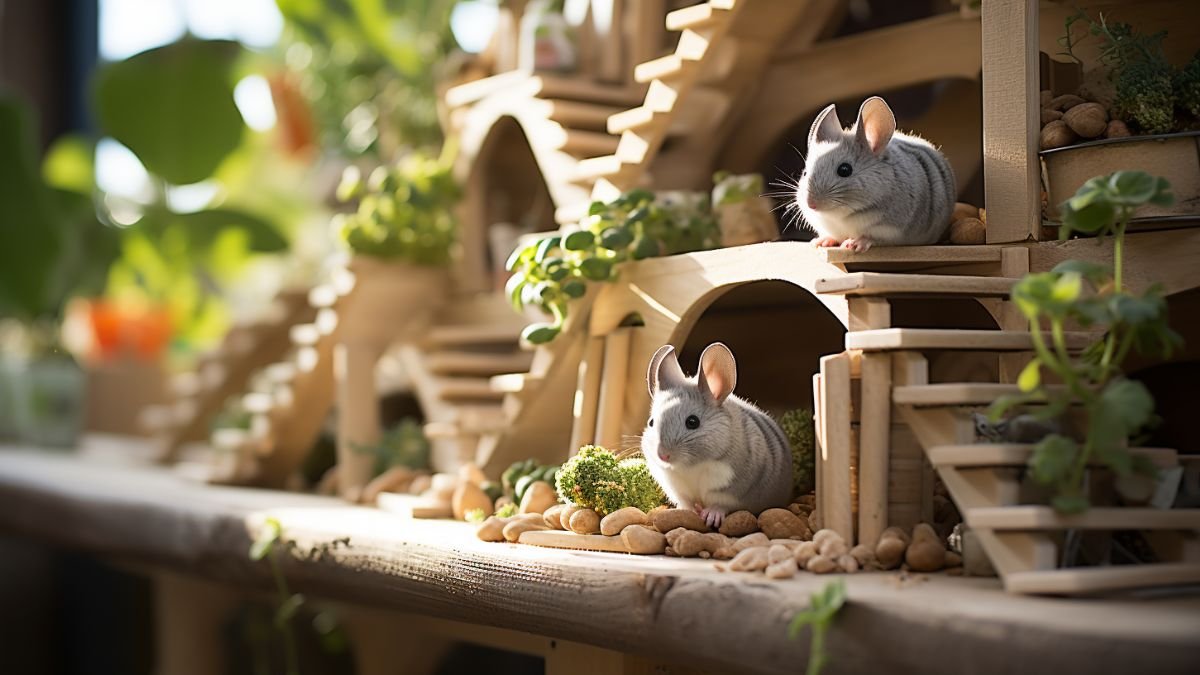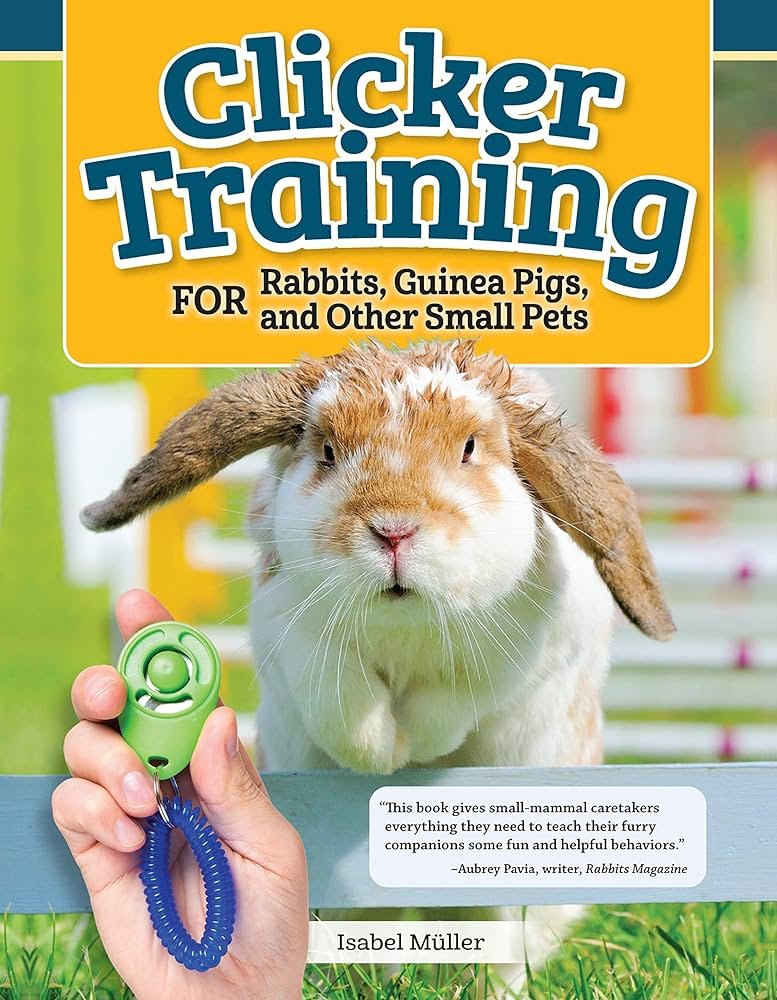
If you have a new chinchilla, you might notice it acting scared or shy. This is very common, but it can be frustrating for you and stressful for your pet.
The good news is, you can help your chinchilla feel safe and calm. Imagine your furry friend trusting you and enjoying your company without fear. You’ll discover simple, effective ways to reduce fear in your new chinchilla and build a strong, loving bond.
Keep reading to learn how to create a happy and peaceful home for your pet.

Credit: www.amazon.com
Chinchilla Behavior Basics
Understanding basic chinchilla behavior helps reduce their fear. Chinchillas are shy and easily scared animals. They need time to feel safe and trust their new home. Knowing what makes them nervous and how they show fear is key to helping them relax.
Chinchillas use body language to communicate. Watching their movements and sounds can tell you how they feel. Recognizing these signs allows better care and less stress for your pet.
Common Fear Triggers
Loud noises startle chinchillas quickly. Sudden movements also scare them. New people or animals in their space cause stress. Bright lights can make chinchillas uncomfortable. Changes in their cage or routine create fear. Avoiding these triggers helps keep chinchillas calm.
Body Language Signs
Chinchillas show fear by freezing or hiding. They may puff up their fur to look bigger. Teeth chattering means they feel stressed or annoyed. Rapid tail flicks signal nervousness. Ears pressed flat against the head show worry. Watching these signs helps you understand their feelings.
Creating A Safe Environment
Creating a safe environment is key to reducing fear in new chinchillas. A calm, secure space helps them adjust faster. It lowers stress and builds trust. Chinchillas feel safer when their home meets their needs. This section explains how to set up that space.
Ideal Cage Setup
Choose a cage with plenty of space for jumping and running. Use solid flooring to protect their feet. Avoid wire bottoms that hurt. Place shelves at different heights to encourage climbing. Add soft bedding like fleece or aspen shavings. Keep the cage clean to prevent odors. Proper ventilation is important for fresh air.
Quiet And Comfortable Spaces
Place the cage in a quiet room away from loud noises. Loud sounds scare chinchillas easily. Create hiding spots inside the cage with tunnels or boxes. These spots give them a sense of security. Keep the room temperature cool and stable. Bright lights can stress chinchillas, so use soft lighting. A calm space helps chinchillas feel safe and less fearful.
Gentle Handling Techniques
Handling new chinchillas gently is key to reducing their fear. Calm and slow actions build trust. Your chinchilla feels safe with soft touch and quiet voice. Gentle handling helps your pet relax and enjoy time with you.
Patience is important. Let your chinchilla get used to your presence. Small steps create a strong bond between you and your pet.
Approaching Your Chinchilla
Move slowly toward your chinchilla. Avoid sudden movements or loud sounds. Speak softly to let it hear your voice. Extend your hand and wait for it to sniff. Do not grab or rush. This helps your chinchilla feel less scared and more curious.
Proper Holding Methods
Support your chinchilla’s body gently with both hands. Hold it close to your chest for security. Keep your hands steady and calm. Never squeeze or hold too tight. Hold your pet only for short times at first. This builds comfort and trust over time.

Credit: stkittsvet.co.uk
Building Trust Gradually
Building trust with a new chinchilla takes time and care. These small animals can be shy and scared in a new home. Patience is key. Slowly, you can help your chinchilla feel safe and comfortable. Trust grows through gentle and steady steps. Your chinchilla will learn to know you and feel less afraid.
Consistent Interaction Routines
Chinchillas feel safer with regular routines. Try to interact at the same times each day. This helps your pet expect and prepare for your visits. Keep your actions calm and slow. Avoid loud noises or sudden moves. A steady routine builds comfort and trust over time. Your chinchilla will start to look forward to these moments.
Positive Reinforcement Strategies
Use treats to encourage good behavior. Offer small snacks when your chinchilla approaches you. Praise and gentle petting also help. Avoid punishment or harsh words. Focus on rewards to build a positive bond. Positive reinforcement shows your chinchilla that you bring good things. It helps reduce fear and builds a strong connection.
Using Enrichment To Reduce Anxiety
Using enrichment helps reduce fear in new chinchillas. It keeps them busy and calm. Enrichment gives chinchillas a way to express natural behaviors. This lowers their stress and builds trust with owners.
Enrichment includes toys, chewing options, and exercise. These items make the chinchilla’s environment more interesting. A happy chinchilla feels safer and less anxious.
Toys And Chewing Options
Toys give chinchillas something to do. Safe chew toys help keep their teeth healthy. Wooden blocks, pumice stones, and untreated wicker work well.
Chewing reduces boredom and fear. It lets chinchillas use natural instincts. Change toys often to keep them curious and active.
Exercise And Playtime
Exercise lowers anxiety in chinchillas. Provide a large playpen or safe room to run. This lets them burn energy and explore.
Short daily play sessions build confidence. Let chinchillas move freely without stress. Regular playtime helps them trust their new home.
Diet And Health Impact
Diet and health play a big role in reducing fear in new chinchillas. A healthy chinchilla feels safer and stays calm. Feeding the right food helps keep their body and mind balanced. Poor diet can cause stress and fear to grow. Knowing how to support your chinchilla’s health helps in creating a peaceful environment.
Nutritional Support For Calmness
Good nutrition calms chinchillas naturally. High-quality hay should be the main food. It helps digestion and keeps teeth healthy. Fresh water is a must every day. Avoid sugary treats and too many pellets. Vitamins like vitamin C and E support their nerves. A balanced diet lowers anxiety and stress levels. Small, frequent meals can prevent hunger panic.
Recognizing Stress-related Illness
Stress can cause real health problems in chinchillas. Watch for signs like loss of appetite or fur loss. Breathing fast or unusual hiding shows fear. Digestive issues may appear as diarrhea or bloating. Stress weakens their immune system too. Early spotting helps treat problems before they worsen. Regular vet check-ups keep your chinchilla healthy and calm.
When To Seek Professional Help
New chinchillas may show fear for many reasons. Sometimes, their fear is normal and will lessen with time. Other times, fear signals a bigger problem. Knowing when to seek professional help keeps your chinchilla safe and happy. Early action can prevent stress and health issues.
Behavioral Signs Needing Attention
Watch your chinchilla closely. Sudden changes in behavior need attention. If your chinchilla hides all the time or refuses to eat, it is a warning sign. Constant trembling, biting, or aggressive behavior also shows distress. Lack of movement or unusual lethargy means your pet may be unwell. These signs call for a vet’s help. Acting fast can improve your chinchilla’s well-being.
Choosing A Veterinarian
Find a vet who knows chinchillas well. Exotic pet vets have special training. Ask for recommendations from local pet shops or online groups. Check if the vet handles small mammals often. A good vet listens carefully and explains treatments clearly. Make sure the clinic is calm and clean to reduce your chinchilla’s stress. Regular check-ups with a trusted vet keep your pet healthy and fearless.
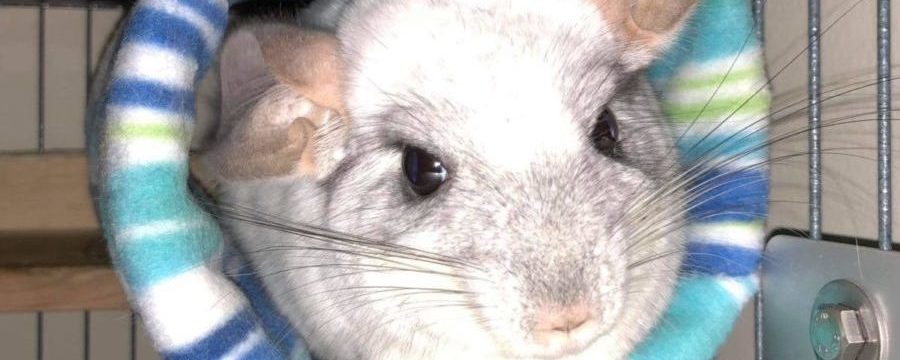
Credit: www.fearfreehappyhomes.com
Frequently Asked Questions
How Can I Calm A Fearful New Chinchilla?
Create a quiet, safe space for your chinchilla. Avoid sudden movements and loud noises. Use gentle handling and speak softly to build trust gradually.
What Is The Best Environment For A New Chinchilla?
Provide a spacious cage with hiding spots and soft bedding. Maintain a cool, dry room away from direct sunlight and drafts to reduce stress.
How Long Does It Take For Chinchillas To Trust Owners?
It usually takes several weeks of gentle interaction. Consistent, patient handling helps chinchillas feel secure and less fearful over time.
Should I Use Treats To Reduce Chinchilla Fear?
Yes, offering healthy treats during interaction builds positive associations. Treats encourage approach and make handling less intimidating for new chinchillas.
Conclusion
Reducing fear in new chinchillas takes time and patience. Gentle handling helps build trust step by step. Keep their environment calm and quiet for comfort. Offer treats to create positive connections. Watch their body language to understand feelings better. Small, steady changes make chinchillas feel safe.
Enjoy the process of bonding with your pet. A happy chinchilla leads to a happier home.

